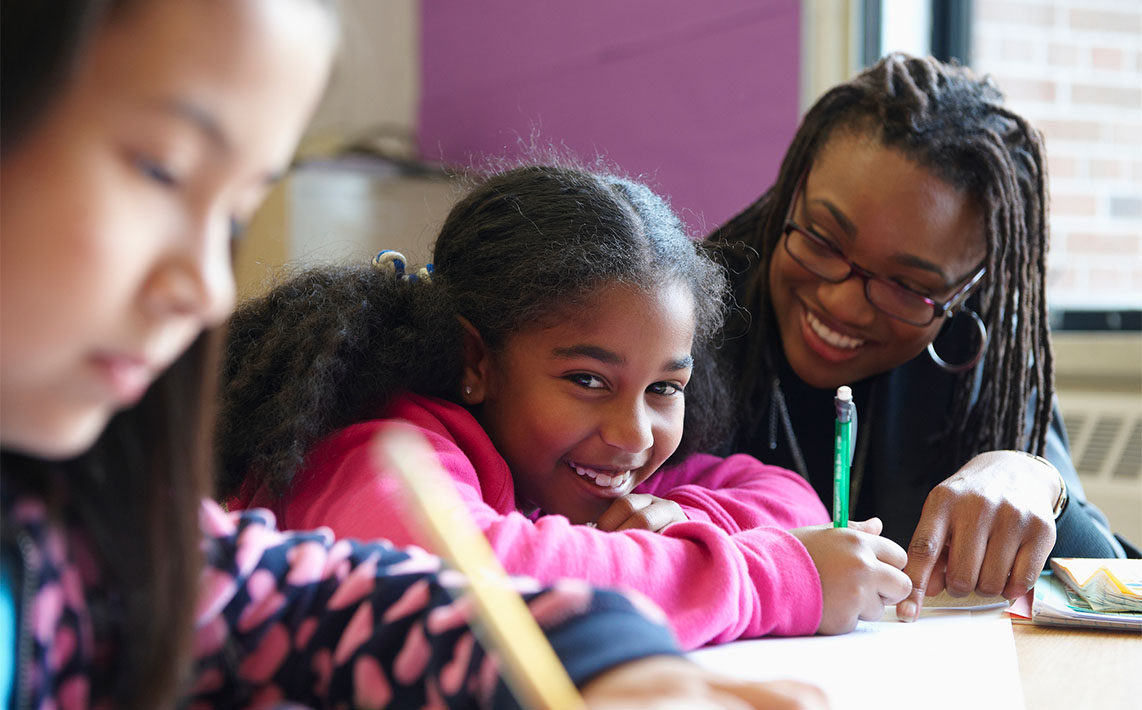Self-Awareness
Family Resources on
Write It Out!
Project and Purpose
Students learn about the tool of writing to help manage emotions.
Essential Questions
How do we practice self-control?

If this lesson was used in the classroom: Students discussed how to deal with a bad day and wrote about how to cope with a bad day
Getting Ready for the Conversation
We all have bad days and need to learn that many of the things that happen during a bad day are beyond our control. Talk with your child about a bad day and what to do when that happens. The teacher may have used a story where someone had a bad day (such as the popular book Alexander and the Terrible, Horrible, No Good, Very Bad Day by Judith Viorst).
Conversation Starters and Practice at Home Activities
Tell what happened the last time you had a bad day. What was it that made the day bad? Was there anything you could do to change what happened?
What is something you can always do on a bad day to make it better? Why is it a good idea to do this?
Write out a plan for what to do if you have a bad day. Why do you think this plan will work?
Think about the last time you had a bad day. Would your plan have worked? Why or why not?
School to Home Resources on Write It Out!
Materials
- Alexander and the Terrible, Horrible, No Good, Very Bad Day by Judith Viorst, or any similar, appropriate book where the main character has a bad day
- Materials to create a journal including lined paper and construction paper for a cover
- In a remote environment, meeting software will need to have “breakout room” or similar function enabled to allow pairs of students to have discussions. Also, handouts may need to be emailed to students ahead of time or shared in meeting software chat function
Procedure
Introduction:
1. Ask students to think about the emotions they experience during a typical school day and make a list on the board.
2. Next, ask students to recall a particularly difficult or rough day they had at any time during their school years that made them upset.
- How old were you or what grade were you in at the time?
- What had happened to cause the difficult or rough day?
- Who was involved?
- How did you feel at the time?
- How did you handle your emotions?
- If it happened today, would you react differently? Would that same event cause you to get upset? Why or why not?
3. Continue the discussion by talking about how we all have rough days and the emotions that come
with them are natural. It’s what we do to help ourselves understand and work through our emotions that is important in life. Emphasize that knowing how to deal with our emotions in a healthy way is also important to help prevent using alcohol and drugs.
Direct Instruction (I do):
1. Explain that in today’s session students will re/visit a favorite story that some of them may have heard or read when they were younger.
2. Read the book you have chosen.
3. Discuss how students will look at the message of the story as it might relate to drug and alcohol prevention
Guided Exploration (We do):
1. When the story is complete, talk with students about its message.
2. What happened to the main character?
3. How did he handle these struggles?
- Were they done in a positive or negative way?
- What would you have done?
- How does the character’s story compare/contrast to our class stories about days when we were upset?
4. Discuss with the class that sometimes when bad things happen (and bad things can happen to all of us), it is up to us to decide how we are going to react to them. Are we going to turn to things or do things that might be bad for us? What might some of those things be? (e.g., drugs, alcohol, violence, other bad behavior.)
5. What are some positive things we can turn to and do instead?
Independent Practice (You do):
1. Introduce the idea of journals. Writing can be a way to work out and work through things that might be challenging, bothering us or making us sad.
2. Explain that each student is going to create a journal, in which they can write and/or draw about whatever they want. These journals are to “get out” any inside thoughts or feelings they may have bottled up inside. They should write about things that are bothering them in order to express themselves.
3. Explain to the students that when they write about these problems/struggles, it prevents them from acting out negatively.At the end of each passage, the students should reflect on how they are going to deal with what is going on, in a positive way.
4. Explain to the students that these journals are completely private and no one else will read them. They are to help them express their feelings and take the time to think about how they are going to move on from here.
5. Ask students to determine a private place to keep the journals. Should the teacher hold onto them or should they remain in student desks or cubbies?
Conclusion
Review the themes of the lesson and discuss the following: Why is it good to think about ways we can show self-control before we get into a situation where we need self-control?

